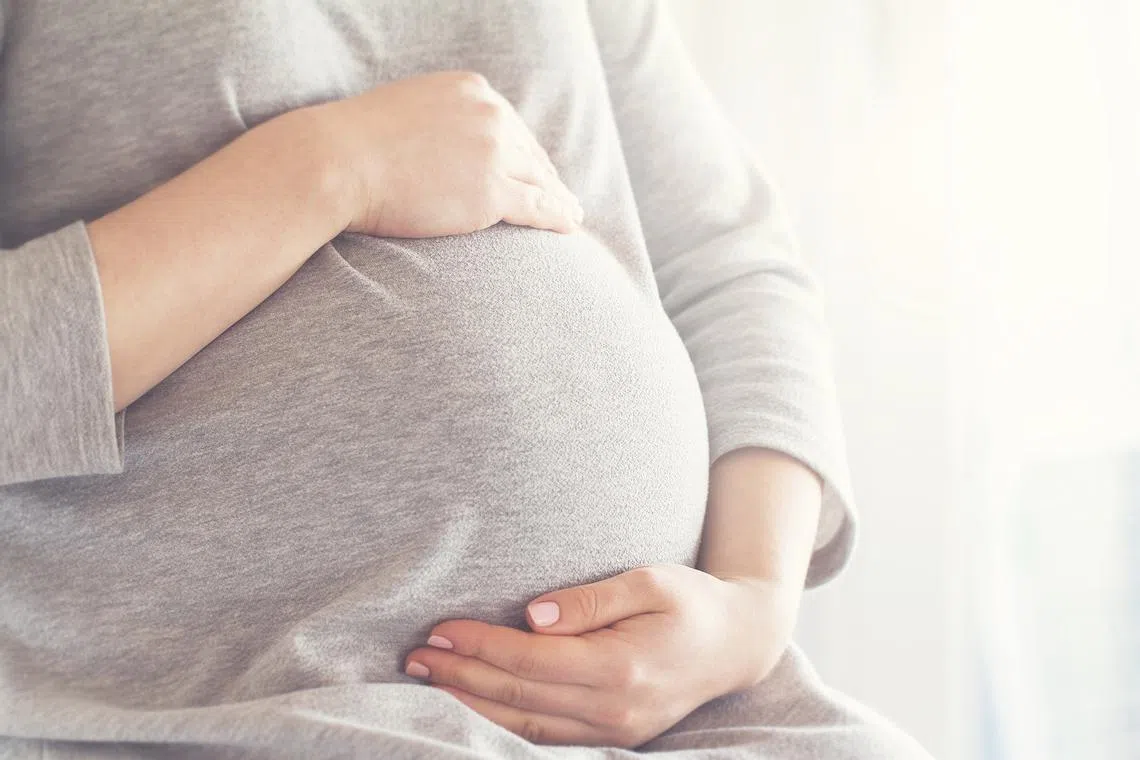Baby blues can happen as early as during first trimester: Study
Sign up now: Get ST's newsletters delivered to your inbox

Findings from the study underscore the need for more early intervention during pregnancy, researchers said.
PHOTO ILLUSTRATION: PIXABAY
SINGAPORE – Symptoms of depression can strike as early as in the first trimester of pregnancy, and not just after childbirth, an international study led by the Agency for Science, Technology and Research (A*Star) has found.
While health professionals often emphasise the post-partum stage after childbirth as a high-risk period for the onset of depression, findings from this study underscore the need for more early intervention during pregnancy, researchers said.
The study, which was published in medical journal JAMA Network Open on Oct 26, involved seven cohorts across the United Kingdom, Canada and Singapore.
From July 2022 to April 2023, researchers from the Translational Neuroscience Programme at A*Star’s Singapore Institute for Clinical Sciences (SICS) analysed data from the cohorts.
The 11,563 women across these cohorts had a mean age of 29, and had given birth between 1991 and 2022. They had self-reported depressive symptoms using screening tools from pregnancy to two years following childbirth, and researchers analysed how their symptoms progressed during that period.
Dr Michelle Kee, a research scientist at SICS and the first author of the paper, said the study found that the women had depressive symptoms that were stable from pregnancy onwards – whether they were low, mild or high enough to possibly be diagnosed as depression.
“This highlights that serious maternal depressive symptoms don’t just occur after birth, but may begin during pregnancy and could remain at that level even after birth,” said Dr Kee.
Associate Professor Helen Chen, a senior consultant at KK Women’s and Children’s Hospital’s Department of Psychological Medicine, said: “A whole host of factors can lead to depression during pregnancy. Previously, the focus has been on postnatal depression as it was commonly understood that having the baby, and the stress of caring for the baby, is what makes women depressed with regard to motherhood. But we now have more evidence that supports the need to address depression antenatally.”
Women who have suffered depression at some point in their lives may have worries about how they can cope with the transition to motherhood, said Prof Chen.
Those who had adverse childhood experiences such as family violence or parental marital conflict may have repressed painful memories that resurface during pregnancy. Women who have conditions like gestational diabetes – a type of diabetes that can develop during pregnancy – and have to cope with a changed diet and multiple tests could also feel emotionally worn down, she said.
Dr Kee said: “Interventions, guidelines for care, and public health policies aimed at alleviating maternal depressive symptoms should target as early as preconception, at least during pregnancy, in addition to the postnatal period, for more effective outcomes.”
Research shows that maternal depressive symptoms can negatively affect a child’s nutrition, physical health, cognitive functions, socio-emotional development and school readiness, and also increase the risk of mental health conditions such as attention deficit hyperactivity disorder and depression.
Dr Tan Thiam Chye, a consultant obstetrician and gynaecologist at Mount Elizabeth Novena Hospital, said the study is impactful.
He said: “Studies show that maternal depression can affect the baby’s brain development in pregnancy, especially in the amygdala or emotional centre of the brain. I have seen patients with depression early in pregnancy. Timely intervention can improve their mood, and understanding its impact on the baby will be a strong motivation for them to get out of depression.”
Prof Chen said interventions can include counselling, which can help those with past struggles make sense of their issues.
She said: “If the mother is distressed and her functioning is affected, we recommend antidepressants because we want her to get well so that she will be in a good state of mind at delivery. There are safe options that can be used, especially in the second trimester when the baby’s organs are formed.”



